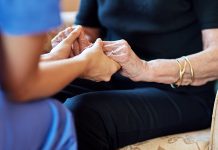The unpopular ‘vaccinate or mask’ policy at Waikato District Health Board – that led to two unvaccinated nurses being suspended in 2015 – is being reviewed for the upcoming flu season.
Waikato DHB’s acting chief executive Derek Wright has asked for a review of the previous CEO Nigel Murray’s policy of requiring non-vaccinated health workers to wear masks while delivering patient care.
Murray brought the unpopular VOM (vaccinate or mask) policy with him from his old employer, British Columbia’s Fraser Health Authority where the policy had successfully withstood a union legal challenge.
Waikato introduced the hardline policy in 2015 – including suspending two unvaccinated nurses – and saw its nurse vaccination rate jump from 52% in 2014 to 81% in 2015, 80 per cent in 2016 and 81 per cent again last year.
The New Zealand Nurses Organisation has been on the record that while the organisation was quite clear it encouraged nurses and other members to get the seasonal flu vaccine, it also had “significant concerns” about the co-ercive nature of a VOM policy.
Waikato’s staff immunisation rate has never surpassed Tairawhiti DHB whose positive campaign – centred around a focused week-long campaign into every DHB department followed by catch-up clinics near the staff cafeteria – has kept the DHB at the top of the vaccination tables for four years with 84 per cent of both nurses and overall staff getting the flu jab last season. Tairawhiti also had the highest percent of ‘other’ DHB staff getting immunised at 90 per cent and the highest percentage of midwives with 88 per cent.
A Waikato spokesperson said the DHB had decided it was timely to revisit the VOM policy to see whether it was working. “Our Infection Control Committee will be looking at the evidence and research around masking and make a recommendation to the Executive. It could mean the policy is amended, or it could remain,” said the spokesperson. She said Wright was keen to work with staff and find the best solution for the DHB’s staff which also kept patients safe. “Obviously getting immunised and staying home if you are sick is the best protection for everyone.”
The DHB’s acting chief executive initially trained as a general nurse and then mental health nurse in the United Kingdom and worked in a variety of mental health management positions in the UK, New Zealand and Australia before joining Waikato in early 2016 as the DHB’s mental health director.





















